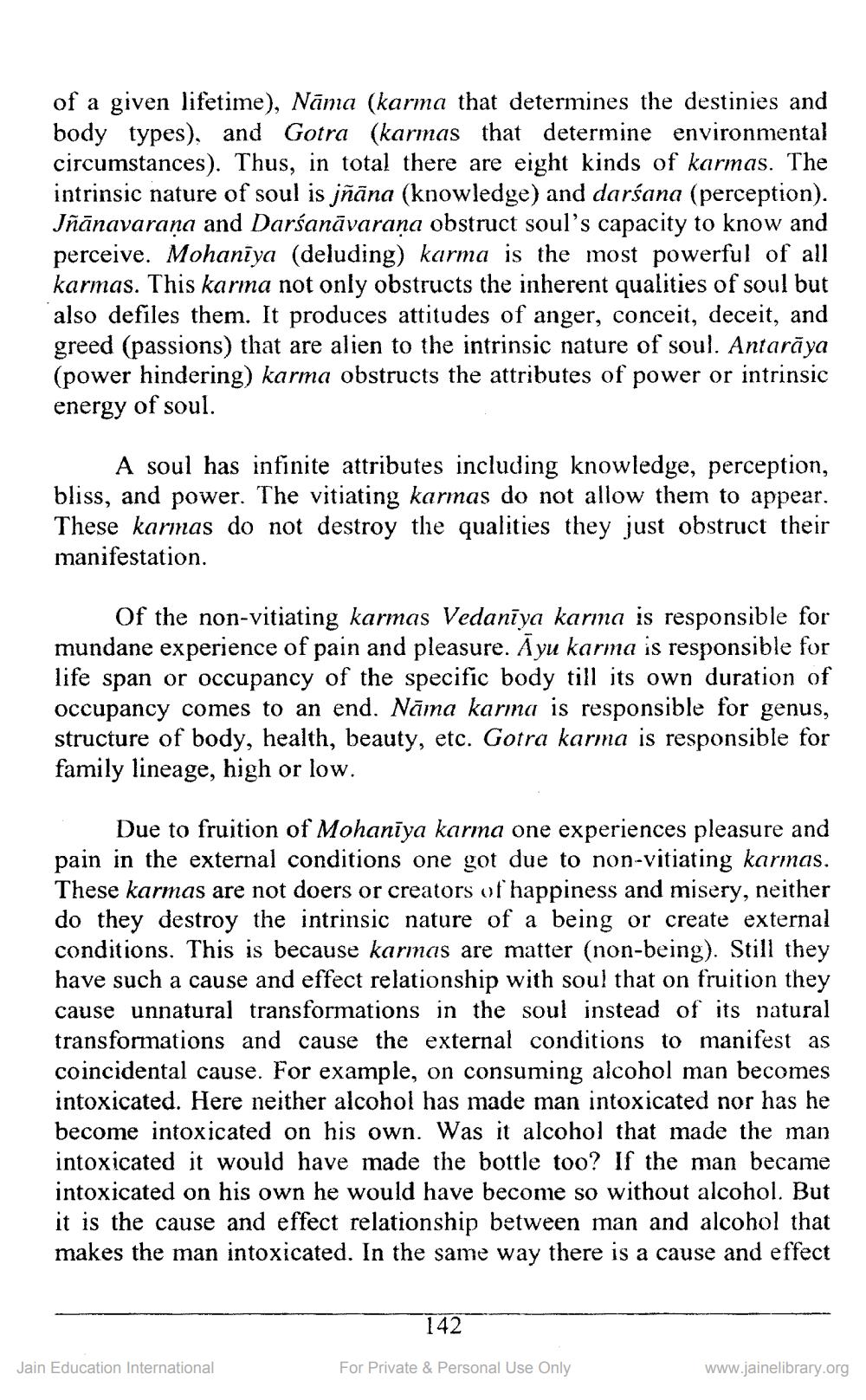________________
of a given lifetime), Nāma (karma that determines the destinies and body types), and Gotra (karmas that determine environmental circumstances). Thus, in total there are eight kinds of karmas. The intrinsic nature of soul is jñāna (knowledge) and darśana (perception). Jñānavarana and Darsanāvarana obstruct soul's capacity to know and perceive. Mohaniya (deluding) karma is the most powerful of all karmas. This karma not only obstructs the inherent qualities of soul but also defiles them. It produces attitudes of anger, conceit, deceit, and greed (passions) that are alien to the intrinsic nature of soul. Antarāya (power hindering) karma obstructs the attributes of power or intrinsic energy of soul.
A soul has infinite attributes including knowledge, perception, bliss, and power. The vitiating karmas do not allow them to appear.
These karmas do not destroy the qualities they just obstruct their manifestation.
Of the non-vitiating karmas Vedanīya karma is responsible for mundane experience of pain and pleasure. Āyu karma is responsible for life span or occupancy of the specific body till its own duration of occupancy comes to an end. Nāma karma is responsible for genus, structure of body, health, beauty, etc. Gotra karma is responsible for family lineage, high or low
Due to fruition of Mohanīya karma one experiences pleasure and pain in the external conditions one got due to non-vitiating karmas. These karmas are not doers or creators of happiness and misery, neither do they destroy the intrinsic nature of a being or create external conditions. This is because karmas are matter (non-being). Still they have such a cause and effect relationship with soul that on fruition they cause unnatural transformations in the soul instead of its natural transformations and cause the external conditions to manifest as coincidental cause. For example, on consuming alcohol man becomes intoxicated. Here neither alcohol has made man intoxicated nor has he become intoxicated on his own. Was it alcohol that made the man intoxicated it would have made the bottle too? If the man became intoxicated on his own he would have become so without alcohol. But it is the cause and effect relationship between man and alcohol that makes the man intoxicated. In the same way there is a cause and effect
142
Jain Education International
For Private & Personal Use Only
www.jainelibrary.org




